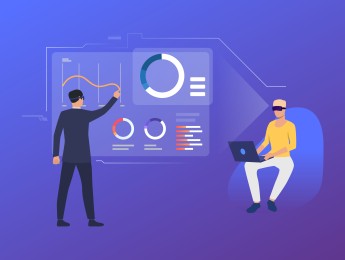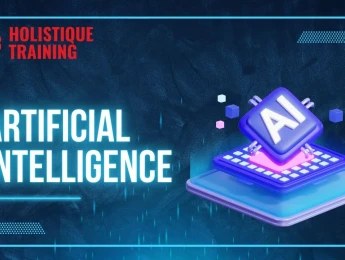Integrating advanced technology is crucial for transforming a human resources (HR) department and ensuring a secure and progressive future in the rapidly evolving business landscape.
To initiate this transformation, organisations should invest in cutting-edge HR software and artificial intelligence (AI) tools that streamline routine tasks, such as recruitment, onboarding, and performance management. Predictive analytics can help HR professionals make data-driven decisions, improving workforce planning and talent acquisition strategies.
Additionally, adopting cloud-based HR solutions enhances accessibility and facilitates remote work, promoting flexibility and efficiency. Cybersecurity measures must be prioritised to safeguard sensitive employee data and ensure compliance with data protection regulations. Embracing virtual reality (VR) and augmented reality (AR) for training and development programs can enhance employee skills and engagement.
By leveraging advanced technology, HR departments can enhance operational efficiency and cultivate a culture of innovation, adaptability, and continuous improvement, thus paving the way for a secure and resilient future.
Upon completion of this course, participants will be able to:
- Acquire proficiency in utilising data and technology for enhanced decision-making in workforce and business matters.
- Recognise and address digital Human Resource Management (HRM) challenges within diverse organisational contexts.
- Build the necessary expertise to establish stakeholder confidence while implementing solutions that enhance an organisation's digital culture, encompassing aspects like adoption, change management, and risk management.
- Examine the elements contributing to the digital evolution of HR practices at organisational, functional, and individual tiers.
- Apply the latest research findings to glean insights from prominent professionals and industry pioneers within the field.
This course is designed for anyone responsible for updating technology within the HR department or creating trending analysis to predict future HR trends. It would be most beneficial for:
- Business Owners
- HR Business Partners
- Human Resources professionals
- IT Consultants
- Data Analysts
- Executives
- Recruiters
- Auditors
This course uses a variety of adult learning styles to aid full understanding and comprehension. Participants will review current HR systems and point out their pain points using group user journey mapping activities. They will then hold group discussions to understand the key solutions to current problems.
They will also see real case studies with data evidence backing technological development and understand how technology could resolve some of the burning problems each organisation faces. Lastly, they will watch a trainer-led presentation to understand the best implementation and communication methods to ensure a smooth transition to a new HR system.
Day 5 of each course is reserved for a Q&A session, which may occur off-site. For 10-day courses, this also applies to day 10
Section 1: The Current State of Human Resources
- Understanding contemporary HR practices and challenges.
- Fostering diversity, equity, and inclusion in HR strategies.
- Mastering talent acquisition and retention in a competitive market.
- Addressing mental health and well-being in the workplace.
- Exploring the impact of remote work on HR dynamics.
- Enhancing employee engagement and satisfaction.
- Adapting HR strategies to evolving workplace trends.
- Leveraging data analytics for informed HR decision-making.
Section 2: How Technology Could Change HR for the Better
- Navigating HR compliance and legal considerations.
- Harnessing technology for efficient HR management.
- Exploring the integration of AI in HR processes.
- Adapting to the latest HR software advancements.
- Leveraging technology for streamlined recruitment and onboarding.
- Enhancing employee experience through digital solutions.
- Addressing cybersecurity challenges in HR technology.
- Understanding the impact of automation on HR tasks.
- Embracing data analytics for predictive HR insights.
Section 3: Identifying the Problem within Current HR Technologies
- Understanding the limitations of existing HR technologies.
- Evaluating common challenges in HR software implementation.
- Addressing issues of data privacy and security in HR systems.
- Exploring user experience (UX) issues in HR technology.
- Identifying gaps in current HR analytics capabilities.
Section 4: Data Sources & Collection
- Primary and secondary data in HR.
- Qualitative and quantitative collection methods.
- Surveys and questionnaires in HR.
- Analysing employee records and databases.
- Social media for HR data.
- Legal and ethical considerations.
- Technology in HR data management.
Section 5: Implementing Digital HRM
- Integrating HR software and tools.
- Employee self-service platforms.
- Cloud-based HR solutions.
- Automation in HR processes.
- Data security in digital HRM.
- Mobile HR applications.
- Change management in digital HR implementation.
- Analytics and reporting in HR.
Section 6: How to Support Your Digital Transformation
- Continuous improvement in digital HRM.
- Developing a digital strategy.
- Leadership and change management.
- Employee training for digital skills.
- Choosing and implementing digital tools.
- Data management and security.
- Integrating digital processes.
- Monitoring and adapting to changes.
- Collaboration and communication in a digital environment.
- Measuring the success of digital transformation.
Upon successful completion of this training course, delegates will be awarded a Holistique Training Certificate of Completion. For those who attend and complete the online training course, a Holistique Training e-Certificate will be provided.
Holistique Training Certificates are accredited by the British Assessment Council (BAC) and The CPD Certification Service (CPD), and are certified under ISO 9001, ISO 21001, and ISO 29993 standards.
CPD credits for this course are granted by our Certificates and will be reflected on the Holistique Training Certificate of Completion. In accordance with the standards of The CPD Certification Service, one CPD credit is awarded per hour of course attendance. A maximum of 50 CPD credits can be claimed for any single course we currently offer.
- Course Code PH1-124
- Course Format Classroom, Online,
- Duration 5 days














